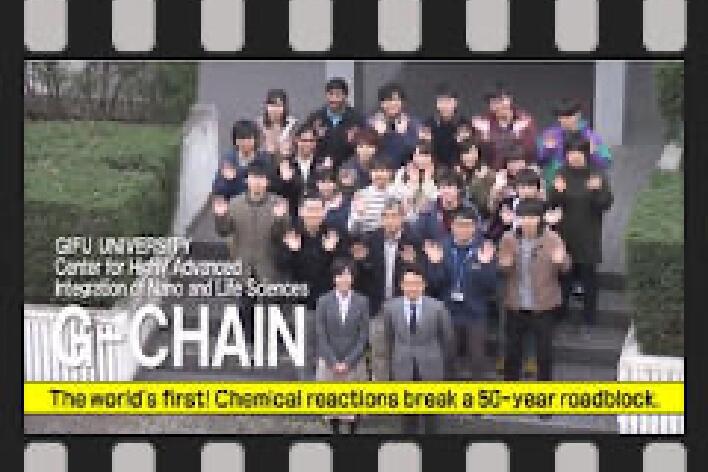How to become a successful small and medium-sized business: Exploration of ways that businesses can diffuse their management philosophies among their staff.
*Information related to faculty members/students and graduate schools at Gifu University here are all that of the time of interviewing.

Managers' ways of thinking diffuse among employees, even if they are not codified
While working for a publishing company, I became interested in management, and, after working for a venture company and a large company, I worked as a small and medium enterprise management consultant, obtained an MBA, and then worked as a management support consultant for a public-sector support organization. To respond to numerous small and medium-sized businesses' concerns about not meeting their sales targets, I obtained my M.S. and Ph.D. Since 2008, I have performed valuation work for the Yokohama-Type Community-Contributing Companies Certification System. Consequently, I have visited more than 100 small and medium-sized businesses, many of which were successful. A successful business is one that has strong and reliable relationships with all five groups of stakeholders: its employees, customers, shareholders, suppliers, and the community. In such businesses, managers have firm beliefs about what they are doing and a solid philosophy. Thus, their employees apply management's guidelines when making decisions.
"Management philosophy" refers to a company's objectives and mission, value system, et cetera. Its importance increases as more attention is given to corporate social responsibility since a great deal of research has been performed in this area. In related studies, management philosophy has been defined as something codified beforehand. However, even in the case of companies that have a few dozen employees but no codified philosophy, when employees are asked what they do when it is difficult to make decisions, they give explanations that can be seen as management philosophies. For example, they repeat something that the CEO frequently says.

From the perspective that management philosophy includes managers' modes of thinking that are not codified, initial progress has been made in research on the means of penetrating the organization with a philosophy. Whereas general marketing targets the consumers of a company's products and services, the means to diffuse corporate policies within the company are termed "internal marketing." From this viewpoint, I have explored the modes by which employees accept and internalize management philosophy.
A finding from my research was that in order to achieve effective penetration of a company's management philosophy, it is important for managers to increase the time they spend communicating it to employees. The only way to do that is to increase the duration and/or frequency of managers' meetings with employees.
However, there are various issues requiring attention from the perspective of the relevance theory, which asserts that if the speaker does not speak on the basis of recognizing the listener's mode of acceptance, the information will not be communicated as intended. As words pass through the filter of a listener's personal experiences and are, thus, interpreted on that basis, there will be differences between people in how the same spoken information is accepted. This is not simply a question of whether things are expressed so as to be readily comprehensible; the listener must be at the stage of thinking about the issues to be fully aware of them. Otherwise, what is said will go in one ear and out the other. It is essential to express information in terms that employees perceive as relevant so that they will think about it.
In addition, the speaker's words are only a part of what must be considered, and the meaning the listener attaches to them sometimes differs from the speaker's intended meaning. To avoid or resolve such misunderstandings, it is necessary for the two parties to converse face to face and confirm the intended meanings. In addition, to diffuse a management philosophy that is not codified and/or is difficult to understand, managers' attitudes and/or gestures are essential components of communication. An assumption that a manager's speech and behavior are consistent is necessary. In other words, managers must show employees where they are coming from.
Busy managers who do not have the time for such communication wonder what they should do. One effective approach is to employ personnel with diverse backgrounds and provide places and opportunities for them to engage in discussions with each other. In this context, it is effective to quickly train or appoint right-hand persons (instead of managers) to communicate with all personnel.
I am involved in student-focused research aimed at developing personnel who will rediscover the attractiveness of Gifu.
When I talk to students, I say to them that, when they visit corporations with the aim of seeking employment, they must ascertain the penetration of the management philosophy among personnel. My advice is to determine whether there is any discrepancy between the management philosophy presented publicly by the company and media distributed by the CEO. I also encourage students to check, during the visit, for any discrepancy between that philosophy and the attitudes and appearance of personnel other than those responsible for making appointments.
I have completed my research on the penetration of management philosophy for the time being. However, from the point of view of management philosophy reaching students once they have become employed, I am currently researching internships and focusing on students with--as previously--attention to psychology relating to the onsite situation and how things actually work. Using the results of this research, I hope to conduct further studies on the penetration of management philosophy in the future.
Having been appointed as an associate professor at Gifu University, my feeling is that an important issue for Gifu and the wider region is being able to develop next-generation businesses. While taking care of existing responsibilities, it is essential to avoid being obstructive and to rethink the principle of absent things being truly absent, as has been done in the town of Ama in Shimane Prefecture. This area is an education hot spot. Developing a consciousness of planting from a base of zero is vital, and it is something uniquely geared toward young people. Gifu University students have the ability level to act vigorously in Gifu's most up-to-date companies. I hope that the attractiveness of Gifu is rediscovered in the perspectives of young people and that they act on the basis of their own sense of responsibility toward society and develop as people with a rich moral, emotional, and cultural outlook. My education and research has those aims.
Management philosophy
penetration process
If managers communicate their management philosophy to employees verbally and employees recognize that the managers' words and actions are consistent, they link them to information from their individual experiences--that is, the context--and, thus, reconstruct the meaning as their own management philosophy. By repeating this process, the management philosophy reaches individual employees. In the case of uncodified management philosophy, which is often spoken about but difficult to put into plain words, interpretation is particularly important for managers to show where they are coming from.

※2 Tacit knowledge:subjective, unspoken knowledge about techniques, skills, etc., based on insight and intuition





